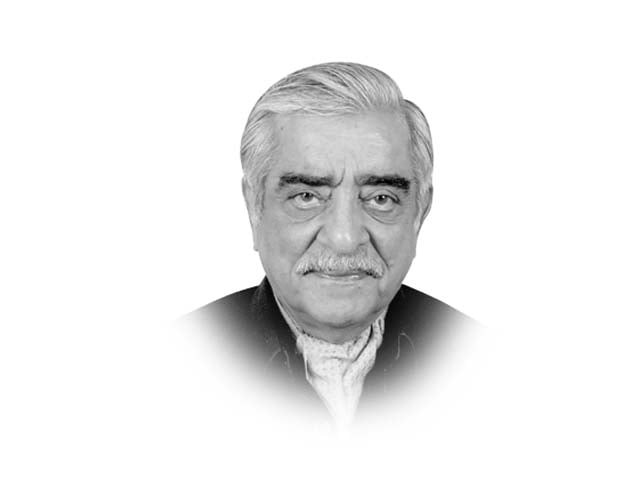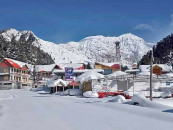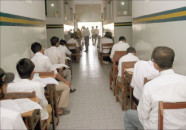Repairing relations with the United States
There is more convergence between the interests of the US and Pakistan than Pakistanis are willing to acknowledge.

Newspaper reports suggest that Pakistani officials in Washington have indicated that the purpose of Gen Pasha’s visit is to rebuild bilateral relations, seek a protection of its interests in Afghanistan, particularly after the US withdrawal, and to ask for a halt to anti-Pakistan propaganda in the US, much of which is based on selective leaks from unnamed US officials. All these problems, serious and real though they are, lie well beyond Gen Pasha’s mandate and would not be dealt with by the officials that he would meet in the CIA headquarters at Langley and are in any case not issues that would need Gen Pasha to rush to Washington when his counterpart has yet to assume office. It would, therefore, be safe to conjecture that Gen Pasha has some urgent intelligence related matters on which coordination with the CIA was felt to be necessary.
Be that as it may, this seems to be a good time to take a look at the relationship as it stands today — particularly after the unilateral May 2 action by the Americans to take out Osama bin Laden — and to judge what needs to be done to achieve the objectives that Gen Pasha has been tasked to achieve.
I have been attending some multilateral conferences in Europe and the US over the last fortnight and, in one way or the other, the US-Pakistan relationship has figured prominently in presentations and in the more informal discussions over a cup of coffee. All one can say, after attending these meetings with American academicians and retired officials who continue to have access to Washington’s official circles, is that both countries need each other, that the present deterioration in relations needs to be reversed and that there is more of a convergence between the interests of the US and Pakistan than Pakistanis are willing to acknowledge.
Recognising this convergence would appear to be the first step needed to rebuild the relationship. The oft-declared American objective is to dismantle and destroy the al Qaeda network. Pakistan, too, maintains that it wants the elimination of terrorism and extremism from Pakistan and the region. We must recognise that bin Laden’s presence in Abbottabad reinforced the American belief that al Qaeda’s main base is in Pakistan. For them, this is the epicentre of terrorism. They have to be convinced that we share the desire to eliminate al Qaeda and that this will also mean eliminating indigenous groups that share the al Qaeda ideology and its international ambitions. We must also insist that when ‘more’ is expected from us, the preparations on the other side of the border are adequate. The absence of the anvil in Kunar when we wielded the hammer in Swat is what has created the cross-border raids into Pakistan in the last few weeks.
The fight against al Qaeda and their local adherents requires devotion of more resources than our tax collection efforts have been able to muster. While it is proper to maintain that we will carry out the war against terrorism with our own resources because this is our war, we must realistically recognise that we need assistance and the special funds that the Americans have created for this purpose should be used.
As regards the Taliban, Pakistan has maintained that while al Qaeda was an enemy, the Taliban could not be so treated because they were by and large representative of Pashtun nationalism and would inevitably have to have an important part to play in Afghanistan. Not only did Pakistan have old ties with them but Pakistan could not afford to antagonise such an important part of the Afghan polity. This the Americans have now conceded.
We now have to think out our own requirements vis-a-vis the Taliban. Have we, after the recent raids from across the border and after the action in Kurram Agency, come to the conclusion that while the Taliban can and must have a place in the Afghan polity, this must only be facilitated if they relinquish control or influence that they have acquired in Pakistan’s tribal areas? It should be clear that even while the majority of the 300-strong groups that have attacked our posts from across the border are from the Tehreek-i-Taliban Pakistan, the sanctuary they enjoyed and their easy passage across the border could only have been with the support of the Afghan Taliban.
The Americans say that they have given up on trying to nation-build in Afghanistan and would be happy if they could exit with a certain amount of grace after organising a reconciliation that would offer some chance of stability and peace. Pakistan, too, desires a stable Afghanistan but such an Afghanistan can only be achieved if all ethnic groups have an equitable share of power. Pakistan has to realise that after 30 years of strife, conditions in Afghanistan have so changed that the old pattern of Pashtun dominance is out of the question, just as it is out of the question that the smaller ethnic groups should continue to enjoy the same disproportionate share of power that they currently enjoy in Kabul. Durable stability will, however, be possible only if regional powers that have traditionally interfered, largely at the behest of Afghan factions, can be persuaded not to do so. This will require more political clout than Pakistan and Karzai’s Afghanistan can muster. It will need the political clout and perhaps the presence of the Americans.
One piece of advice I received during the conferences is worth passing on. Have meetings between small groups of high-level officials on a regular basis and be brutally frank and honest in identifying the objectives of the two sides and pursue those on which there is commonality. It is advice worth following.
Published in The Express Tribune, July 15th, 2011.



















COMMENTS
Comments are moderated and generally will be posted if they are on-topic and not abusive.
For more information, please see our Comments FAQ